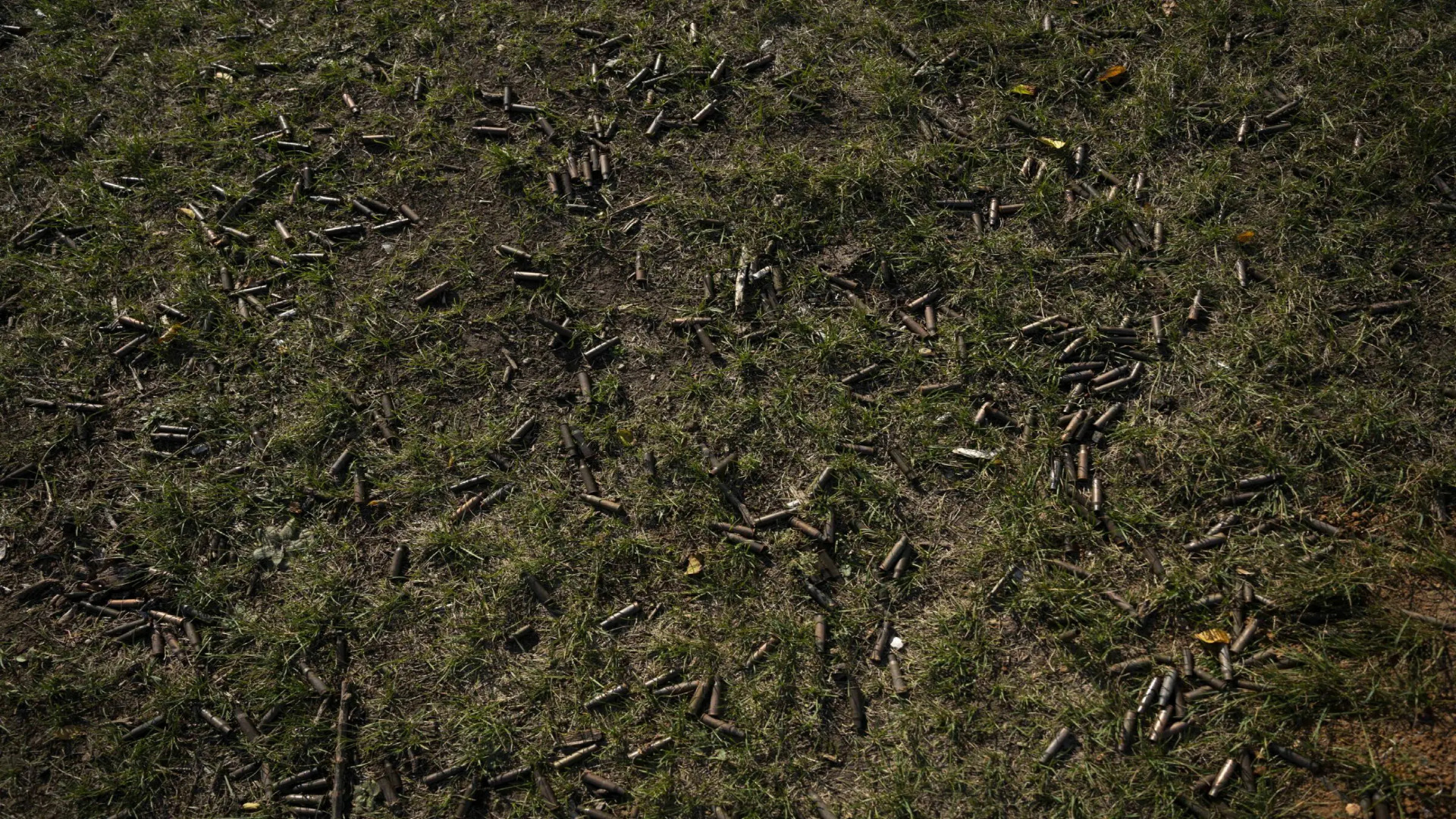With world attention fixed on the war in Gaza, some Ukrainian soldiers fear Russia could escalate its war.
This article was originally published by INKSTICK on 9/11/2023 and was reproduced with permission. Any reprint permissions are subject to the original publisher.
Pictures: Aaron Chamski
Fragments from Gaza after the 2014 war
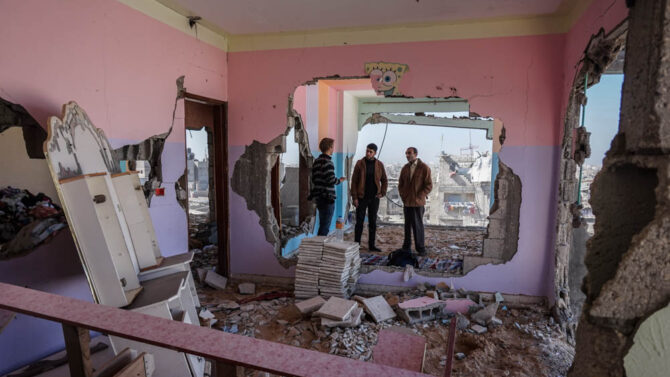
In late 2014, I traveled to the Gaza Strip on assignment for a press rights organization that no longer exists.
Stepping down on the gas, Kaneki puffs a cigarette and navigates his pickup across southeastern Ukraine’s flatlands toward the road to Orikhiv. Early morning daylight is just beginning to brighten the skies above Zaporizhzhia.
The 24-year-old soldier shouts over the sound of the engine. “Israel against Gaza? It’ll quickly die down but can be bad for us.”
Kaneki is attached to Recon Team Kilo, a Ukrainian unit fighting in the south. Since the war between Israel and the Palestinian armed group Hamas broke out on Oct. 7, much of the world, including Ukraine, has turned its eyes toward the Middle East.
Nearly a month into that conflict, the Israeli military has launched a ground invasion into the besieged coastal enclave, home to more than 2.1 million Palestinians. Keeping a close eye on the fighting, some Ukrainians are optimistic, others less so. Many worry that the coverage of the conflict could eclipse international concern for their ongoing struggle. They worry about their legacy, and they worry about the ripple effects between the two wars.
As 40,000 troops sit poised to launch a third wave assault on Avdiivka (200 kilometers east of Zaporizhzhia), Ukrainian President Volodomyr Zelenskyy yesterday tweeted his thanks to Japan and other Group of Seven nations for their, “unwavering support for Ukraine even amid other global developments.”
For his part, Kaneki worries that with the world’s attention fixed elsewhere, Russia could seize the moment to escalate its war on Ukraine. “I’m afraid that the Russians might use the media diversion to start doing dirty things, like using chemical weapons against us,” he says, exhaling slowly. The question of whether Russia has or will use chemical weapons is a pressing concern for analysts and researchers watching the conflict as well.
Strike, 38 years old, one of his comrades, fears being forgotten. “I’m just afraid that tomorrow, Europe and the United States might decide it’s no longer worth helping Ukraine,” he says, “and we’ll find ourselves having to stop waves of Russians without end.”
Both are skeptical, but more important to them than the potential fallout of the Israeli-Gaza war is the present moment in the Zaporizhzhia region.
“When you have your feet in the mud, you don’t think too much about that,” explains Kaneki. “You don’t even think about Ukraine, freedom, or victory anymore.”
It Could Be a Good Thing
Smiley, a former butcher turned machine gunner, is more pragmatic. He believes that the war between Israel and Gaza’s armed groups will benefit Ukraine. “The United States will never abandon Ukraine,” he says. “They’re not here for our good looks but because they have no interest in us losing.”
Smiley, 25, sports a long beard that softens an otherwise sharp face covered in tattoos. “The West is too involved to withdraw or reduce its assistance,” he continues. He pauses and takes a deep breath before arguing that the intensity of the conflict and the need for arms and equipment are radically different between Israel and Ukraine.
“Here, we need an astronomical amount of weapons, shells, human resources, and ammunition every day to face Russia,” he says. “Israel has one of the best armies in the world and is dealing with Hamas, a small terrorist group. We, on the other hand, are facing the Russian army; it’s not comparable.”
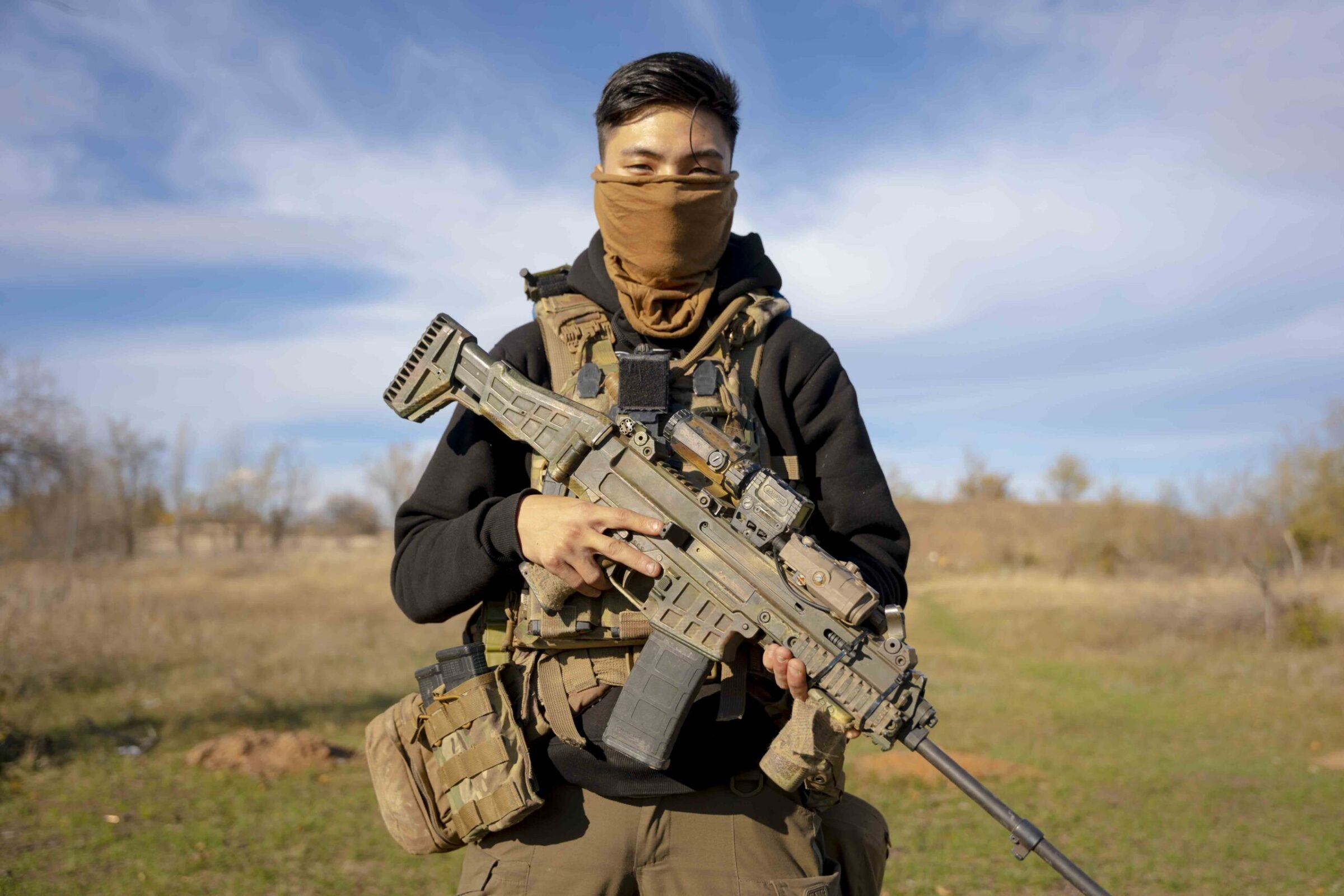
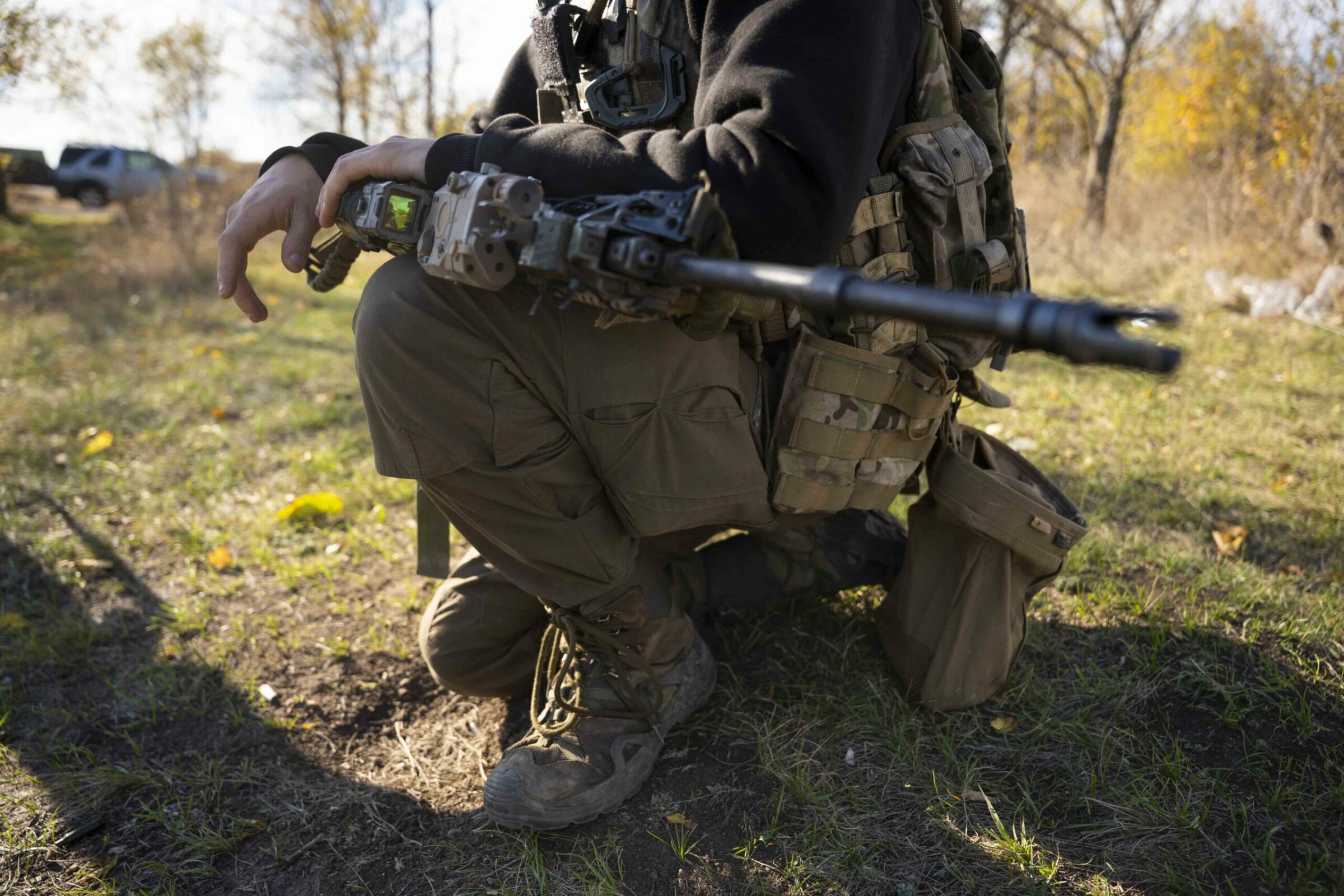
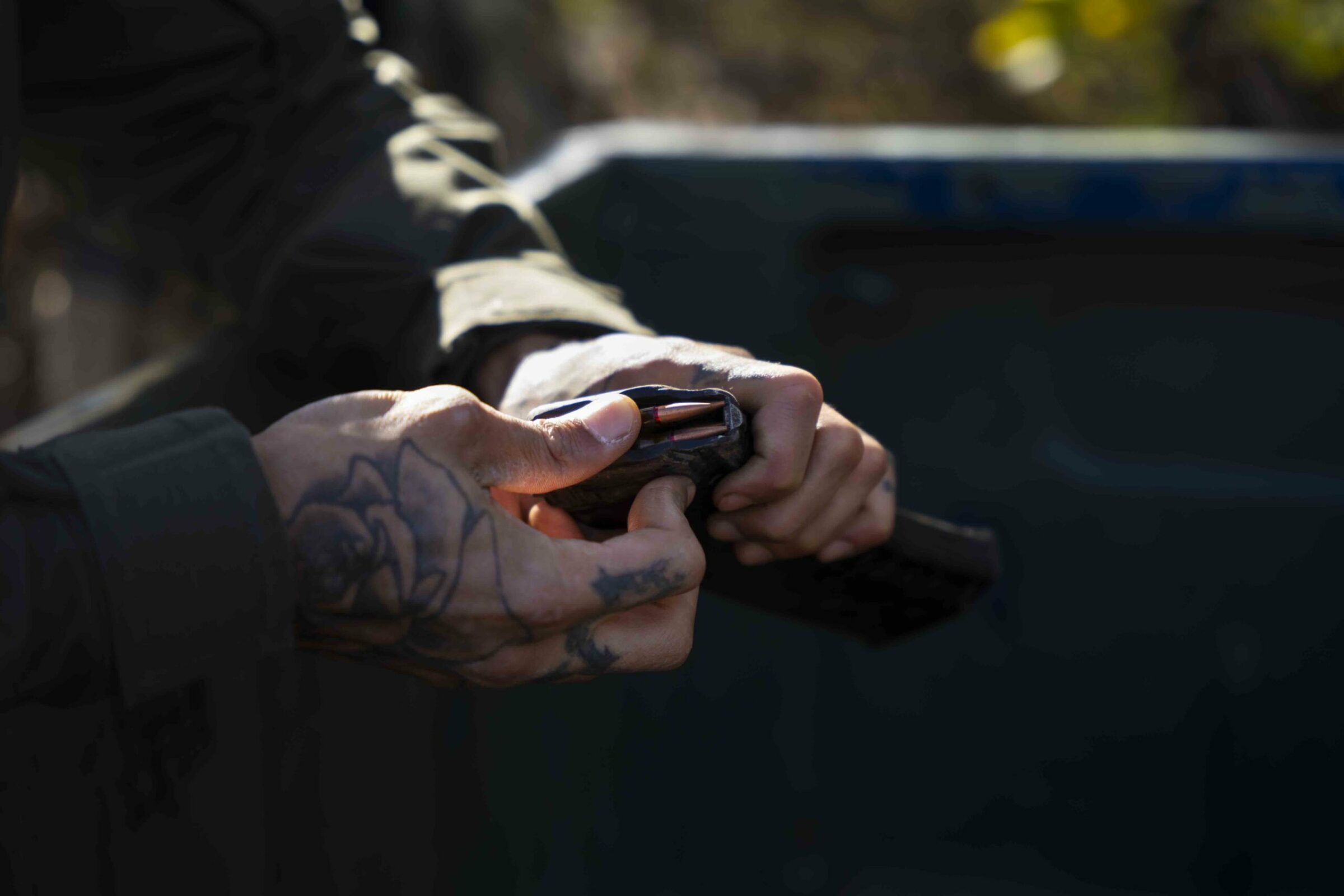
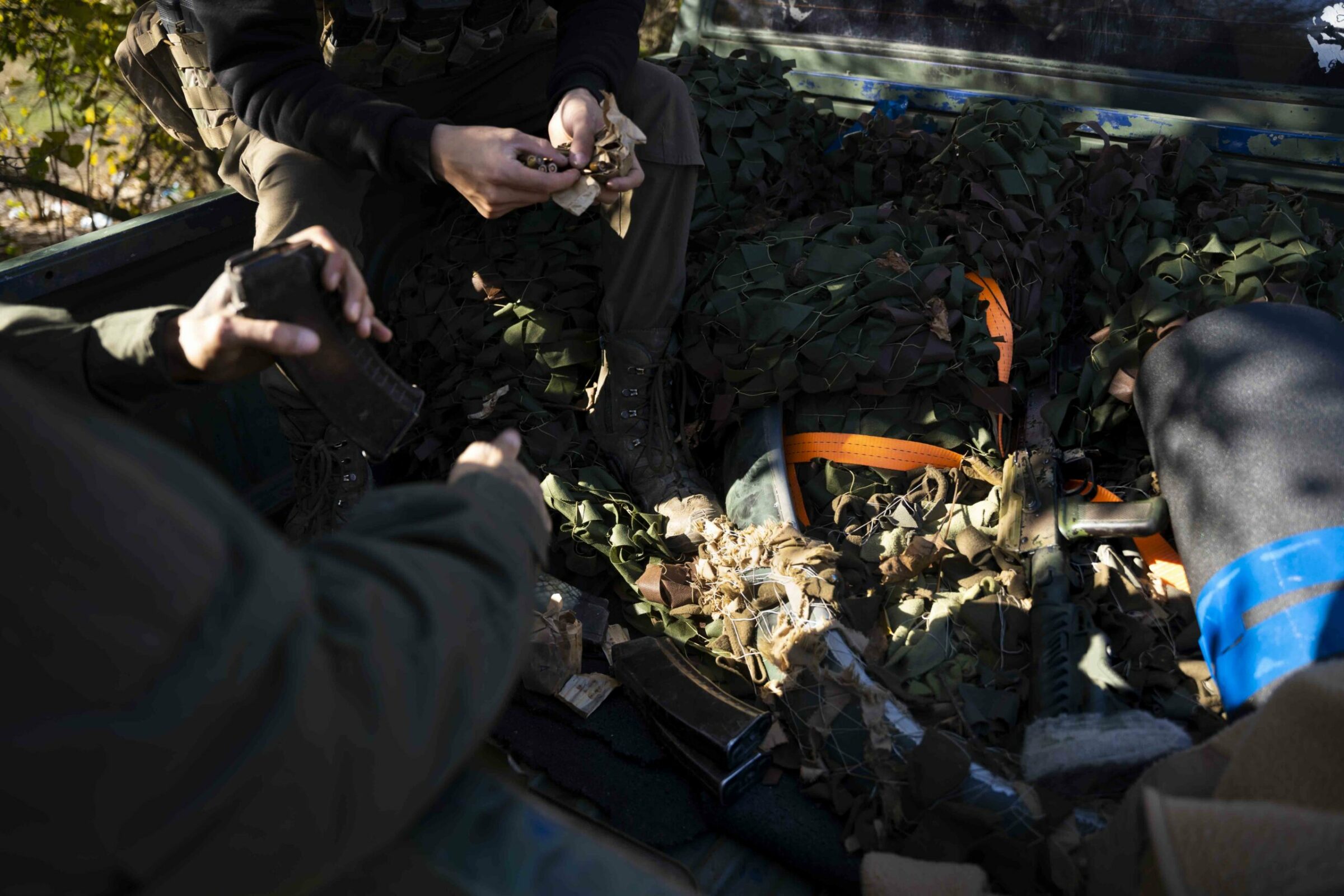
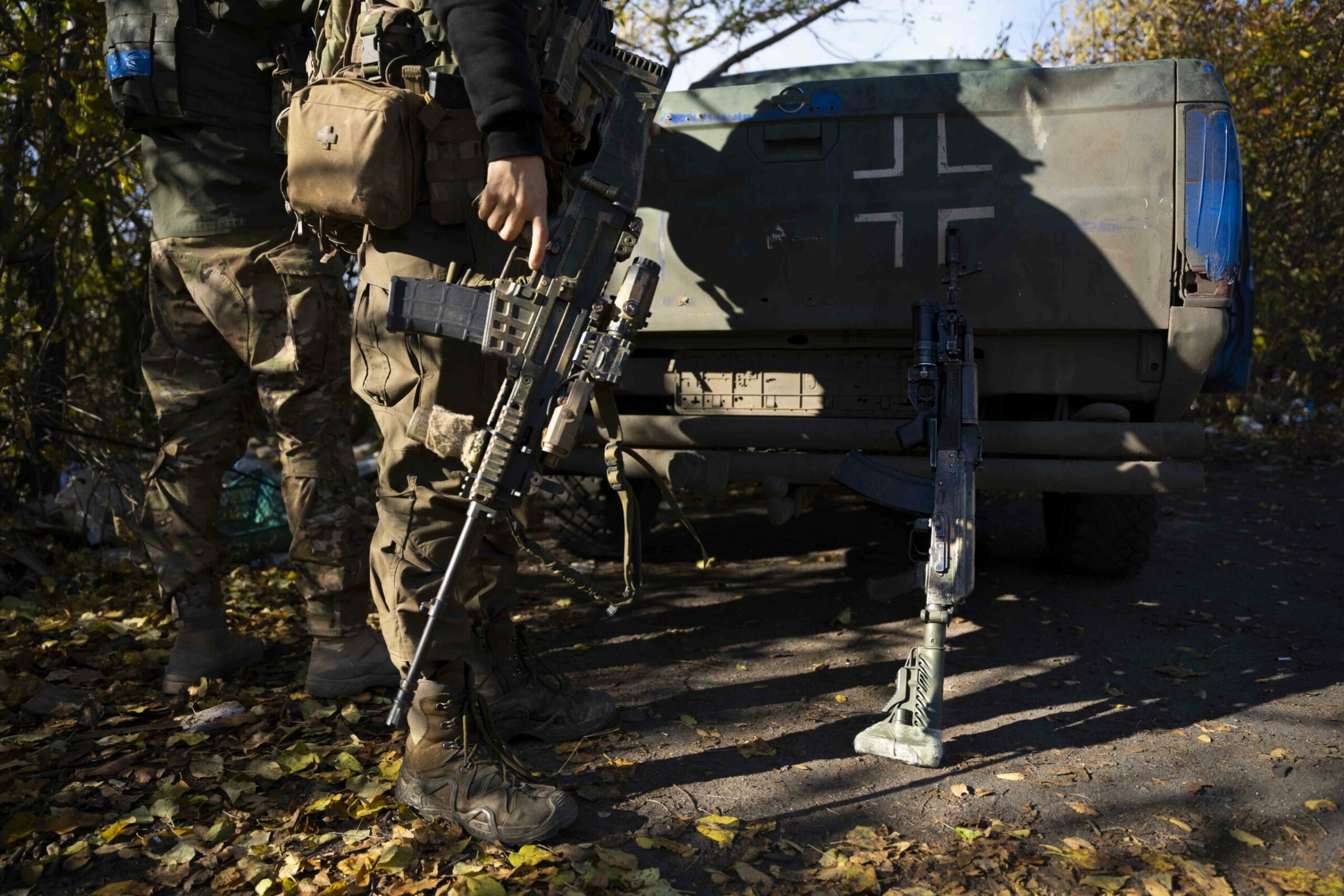
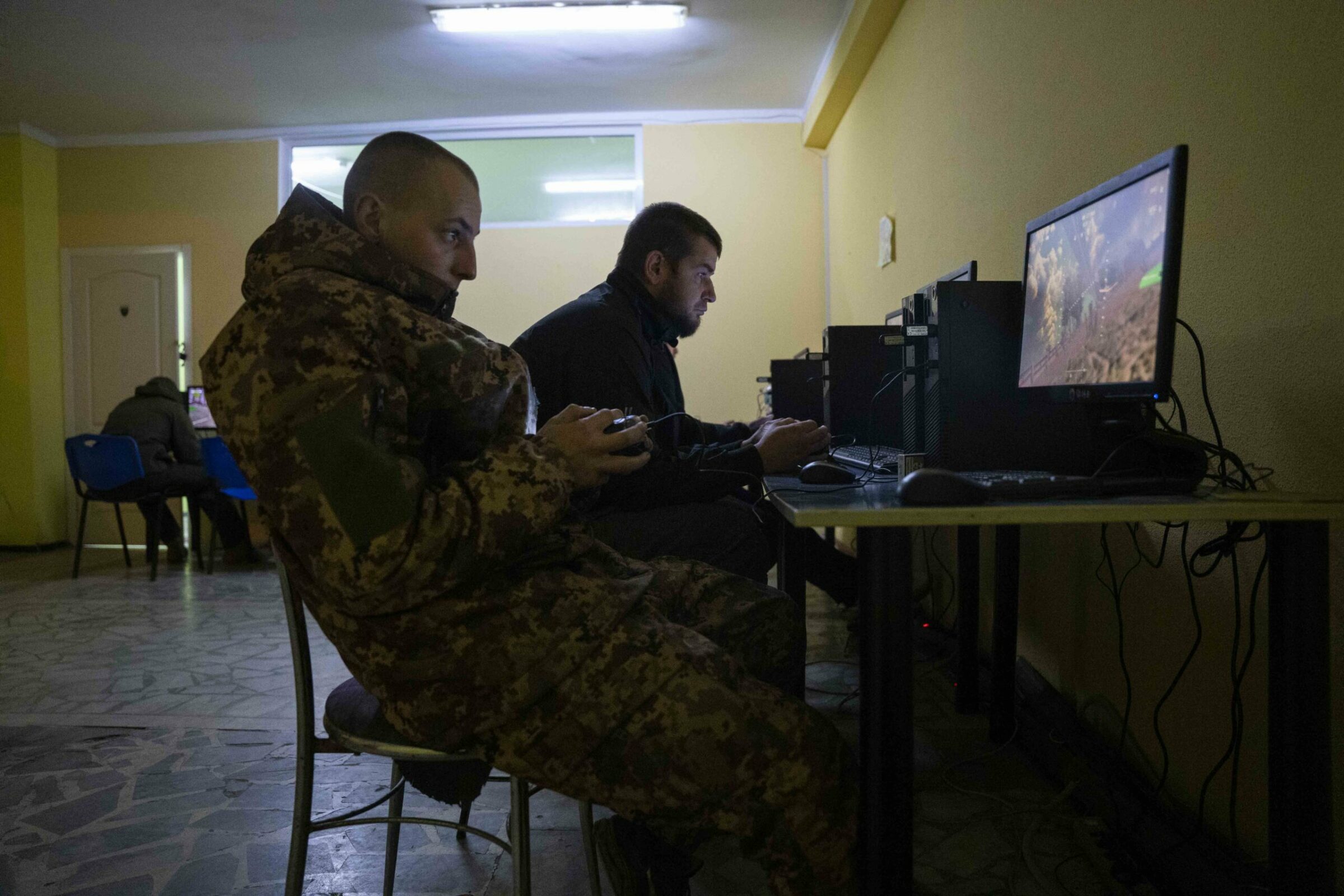
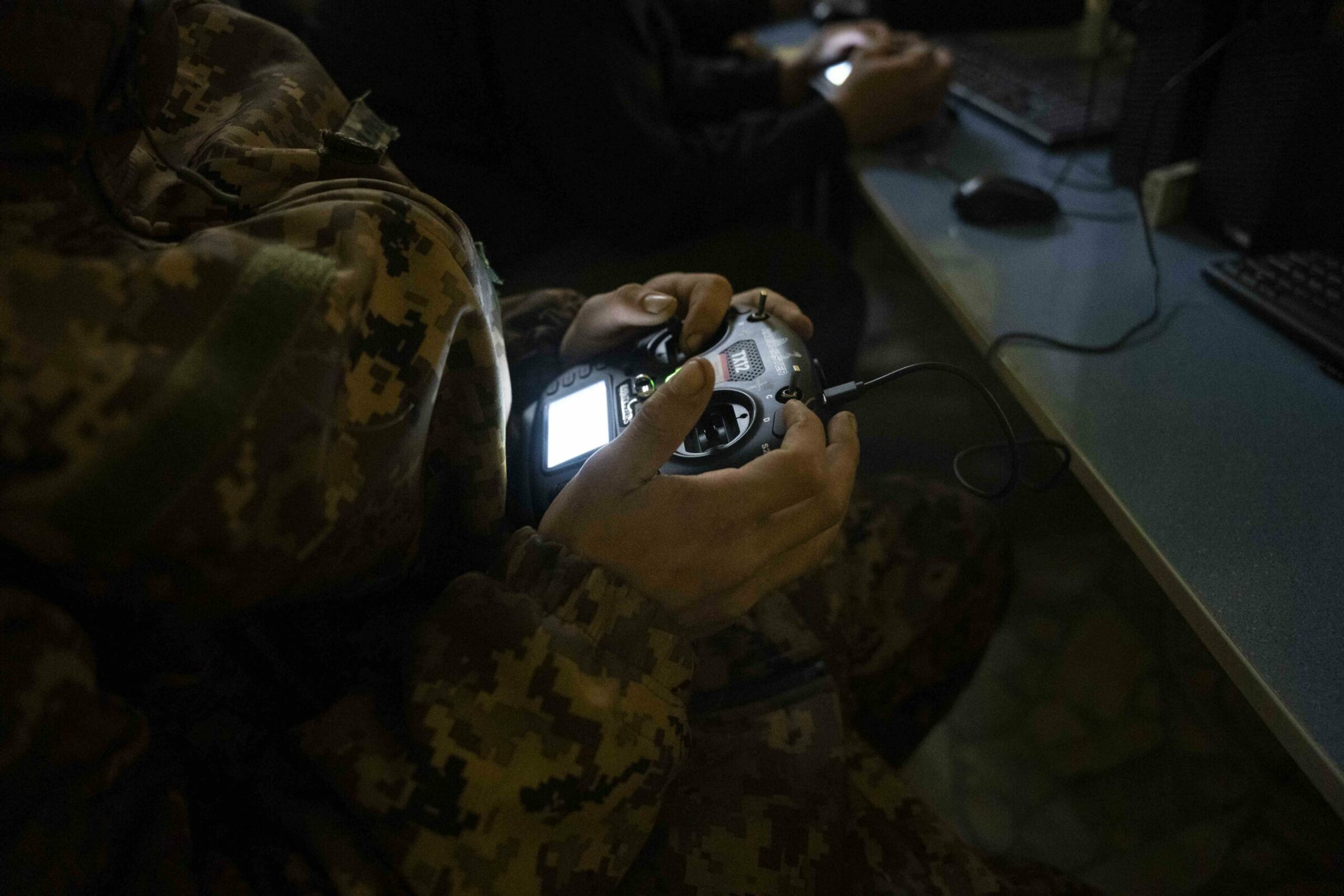
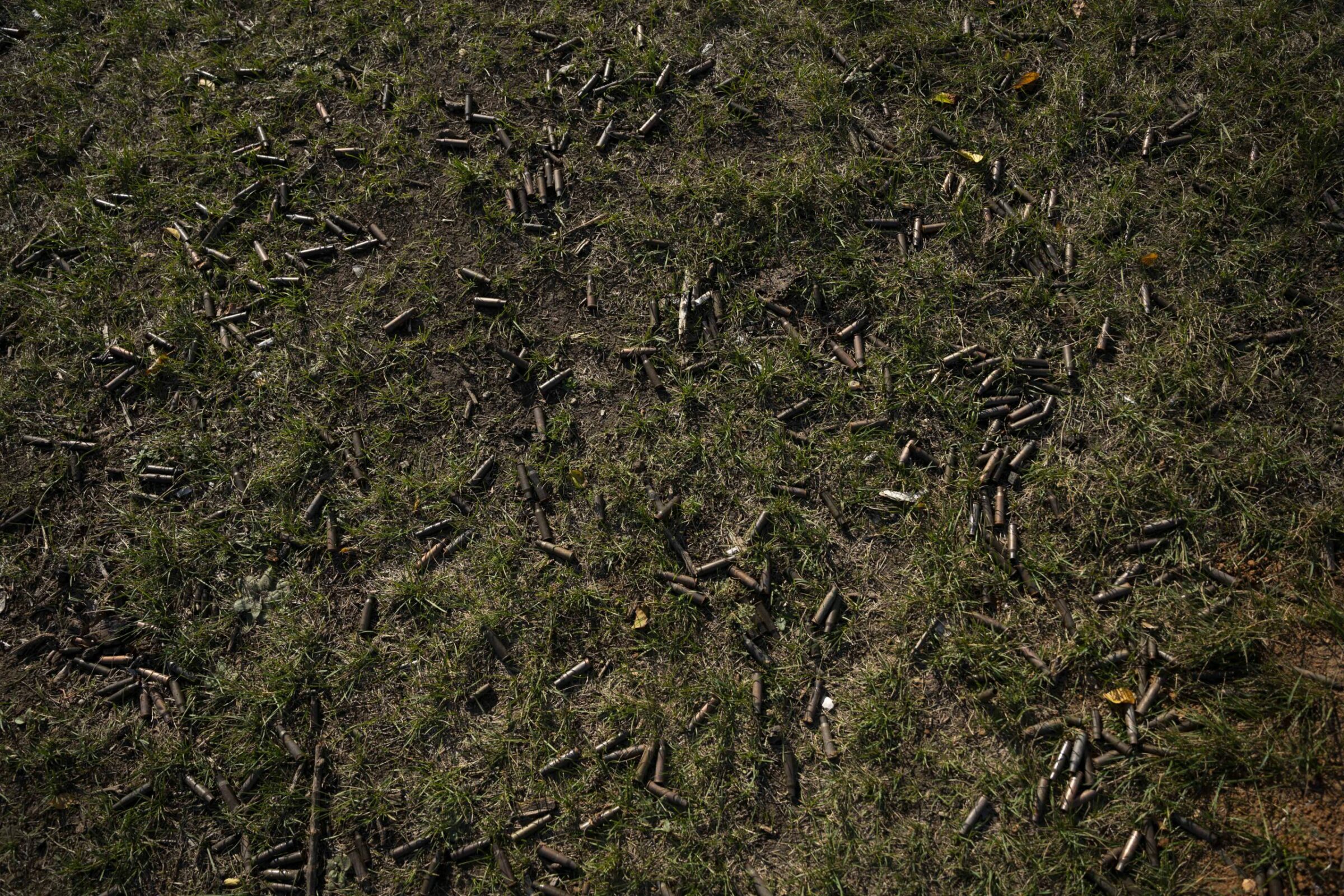
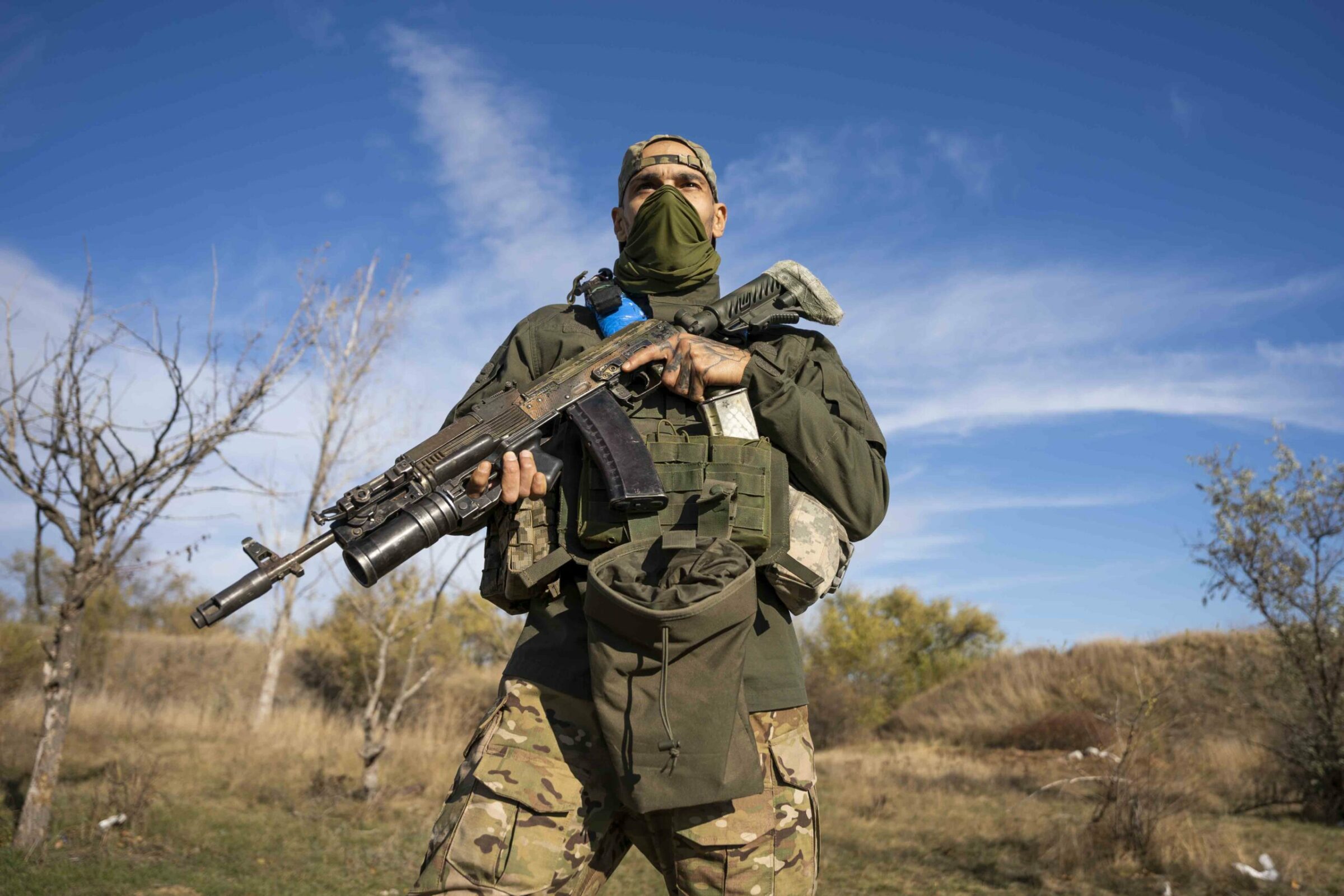
More importantly, he sees the Israel-Gaza war as a turning point that could force Israel to back Ukraine’s war effort and support the country with arms. Despite its steadfast allyship with the US, Israel has maintained a policy of balance and restraint toward Ukraine throughout Russia’s war in the country. While Israel has joined others in condemning Russian crimes, Tel Aviv, despite pressure from Washington, has never sent substantial military aid to Kyiv. There are many reasons behind Israel’s stance, but the most important revolves around Russia’s presence in Syrian skies. Since 2015, Russia has intervened in the Syrian civil war on behalf of Bashar al-Assad’s government, carrying out airstrikes against rebel groups and providing cover for Assad-aligned ground fighters.
Because Russia often refrains from obstructing Israeli fighter jets as they carry out airstrikes against Iranian-backed groups in Syria, Israel has been reluctant to jeopardize its relationship with the Kremlin. This consideration was enough for Israeli Prime Minister Benjamin Netanyahu to minimize assistance to Ukraine, fearing it would strain his relations with Russian President Vladimir Putin.
The Horror of War in Pictures
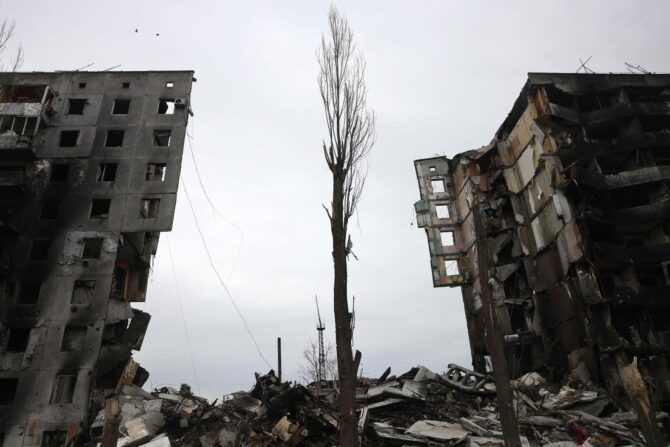
Giorgos Moutafis – images from Bucha, Borodyanka, Hostomel in the first days of April.
Wait and See
Vlad, a 30-year-old drone operator in eastern Ukraine’s Kharkiv, is convinced that the war between Hamas and Israel won’t last long. Once it ends, he believes, Tel Aviv will have no choice but to start aiding Ukraine.
When asked what equipment Ukrainian fighters hope for, Vlad says, “Anything is good.”
Smiley, a weapons enthusiast, is more specific, hoping that Israel provides Ukraine with anti-air defense systems.
“If they could supply us with Iron Beam, that would be extraordinary,” he says, referring to the still unused Israeli weaponry that can reportedly intercept rocket or missile attacks using laser beams.
Sergei, a 30-year-old former cook whose nom de guerre is Hussar, is more concerned. Working as a drone operator, has just returned from a mission in the Donetsk region. He twists his handlebar mustache, which earned him his call-sign. His eyes are still full of fire, and his gaze is lost in the void.
“My biggest fear about the war between Israel and Hamas is that the world will burn,” he says, “and this nightmare of blood, death, mud, dirt, and shit will never end.”
Still, Sergei doesn’t fear that the West will stop supporting Ukraine.
“In any case, my primary role is to be there for my comrades, look after them, and protect them,“ he adds.
When it comes to the consequences of the Israel-Gaza war, Sergei prefers to wait and see whether or not the conflict leads to more support for Ukraine. Either way, he says Ukraine will continue to focus on the battle in front of them.
“We will fight until our very last breath,” he says. “Even if we no longer have weapons, we will continue to fight with our bare hands, standing together until the last of us.”
This piece was edited by Allyn Gaestel and Patrick Strickland.
